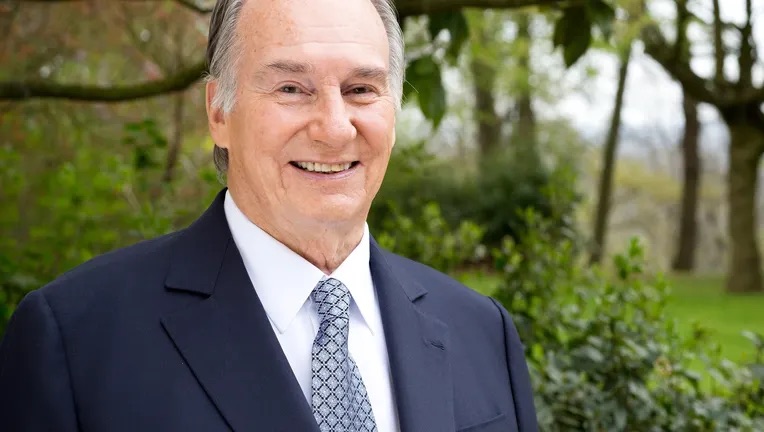
Courtesy Fox 26
Prince Karim Al Hussaini, known as Aga Khan IV, the spiritual leader of the world’s Ismaili Muslims, has passed away at the age of 88.
The Aga Khan died on Tuesday in Portugal, surrounded by his family, according to a statement from the Aga Khan Foundation. Details regarding his successor will be announced at a later date.
He is survived by his three sons, one daughter, and several grandchildren. While he will be laid to rest in Lisbon, no burial date has been disclosed.
A Leader from a Young Age
At just 20 years old, while still an undergraduate at Harvard, Karim Al Hussaini became the Aga Khan IV following the passing of his grandfather. His grandfather bypassed his own son, Karim’s father, in choosing a successor, stating that the Ismaili Muslim community should be led by a young man “who has been brought up in the midst of the new age.”
Over the decades, the Aga Khan transformed into both a revered spiritual leader and a global philanthropist, seamlessly navigating both religious and worldly realms.
A Legacy of Philanthropy and Development
A staunch advocate for Islamic culture and values, the Aga Khan was widely respected for fostering understanding between Muslim societies and the West. Unlike many influential figures, he largely avoided political entanglements, instead focusing on humanitarian efforts.
Through the Aga Khan Development Network, his flagship philanthropic organization, he championed initiatives in healthcare, housing, education, and rural economic development. His contributions were particularly impactful in countries like Bangladesh, Tajikistan, and Afghanistan, where his investments helped improve healthcare infrastructure and local economies.
His deep appreciation for architecture led him to establish the prestigious Aga Khan Award for Architecture and to support programs in Islamic architecture at both Harvard and MIT. He also played a crucial role in restoring historic Islamic landmarks around the world.
A Vast and Complex Financial Empire
While the full scope of the Aga Khan’s financial empire remains difficult to quantify, some estimates place his personal wealth in the billions. His fortune, largely built on tithes from his followers, was consistently reinvested into charitable and developmental projects, further cementing his legacy as a leader who bridged spirituality with social progress.
His passing marks the end of an era, but the institutions and initiatives he built will continue to shape lives for generations to come.




